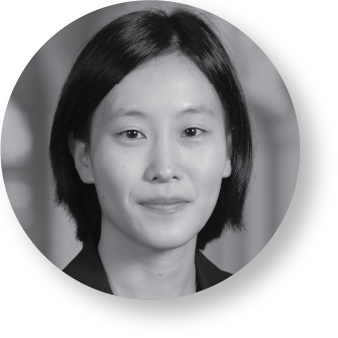PACS news / January 9, 2024
Fall 2023 Small Grants Recipients

Alena Smith is a PhD Candidate in Political Science at Stanford University. She received her B.A. in Political Science from Brigham Young University, where she became interested in studying the interaction of religion and politics. Alena’s research focuses on the influence of Christian nationalism in America. Her dissertation studies how candidates use Christian nationalist themes when running for office and how these cues impact voter support. When she’s not doing research, she enjoys reading sci-fi or fantasy books and working on her farm in Stardew Valley.

Alexander Landry is studying the social psychology of extreme intergroup conflict at Stanford’s Graduate School of Business. Alex’s work focuses on dehumanization, violent extremism, competitive victimhood, and ideological polarization. Ultimately, he hopes his research will yield insights into the human proclivity for mass violence, and possibly inform efforts to mitigate its impact.

Minju Choi is a PhD candidate in International and Comparative Education. She is also a member of the PACS’ Global Civil Society and Sustainable Development Lab, working on research related to education reforms and curricula. Broadly, she is interested in worldwide changes to the visions and purposes of education. For example, her dissertation examines how national constitutions from around the world discuss the right to education for non-citizens cross-nationally and over time. Prior to Stanford, Minju worked in several international governmental and non-governmental organizations, including the World Bank, UNICEF, and UNESCO Bangkok. She holds an M.S.Ed. in International Educational Development and a B.A. in International Relations from the University of Pennsylvania.

Ruth Appel is a PhD Candidate at Stanford University who combines insights and methods from psychology, political science and computer science to develop and evaluate evidence-based interventions to promote the social good.
She is particularly passionate about preventing the spread of misinformation, promoting wellbeing and mental health, and addressing ethical challenges related to new technologies.
Her current research includes a project measuring the reach of influence campaigns on Facebook and Instagram during the 2020 US elections, designing and evaluating an online game to combat vaccine misinformation, and a large-scale evaluation of misinformation interventions on Facebook. She has written about how partisanship affects content moderation preferences and about the ethics and privacy implications of new technologies.
She gained work experience as a UX Research Intern at Google, as a Research Associate at the Center for Advanced Hindsight at Duke University, and as an Intern at the EU Delegation to the UN in New York. She hold a Master’s in Public Policy from Science Po Paris and a B.Sc. in Economics from the University of Mannheim.As Vice President of the Stanford German Student Association, she is involved in building transatlantic bridges and co-organized the Transatlantic Summit 2022, an international conference on geopolitics and tech.

Vlasta Rasocha is a third-year PhD student in economics. Born in the Czech Republic, Vlasta moved to the UK to pursue his undergraduate and master’s studies at Cambridge University. In Rasocha’s research, Vlasta uses experimental and theoretical methods to design and evaluate non-standard policy instruments, such as cross-partisan contact, and shed light on the behavioral consequences of cognitive limitations in complex economic environments.

Camille DeJarnett is a National Science Foundation Graduate Research Fellow, an EDGE Fellow, and a PhD candidate in political science at Stanford. Her research focuses on the significance, both empirical and normative, of language diversity and language policy as factors in the development of political communities. She holds a BS in linguistics from MIT, where she received the Ronald McNair Award in recognition of her academic performance and community contributions. Previously, DeJarnett has worked in the fields of expert and strategy consulting, text-to-speech computational linguistics applications, and corporate real estate finance.

Madison Dalton is a Ph.D. candidate in Stanford’s Department of Political Science. She is interested in identifying strategies for reducing violence perpetrated against politically and socially marginalized individuals. Her dissertation seeks to understand why sexual violence cases are prosecuted at low rates in the U.S. legal system, and how increasing public information on prosecutor performance affects democratic accountability of elected prosecutors. Her broader research agenda includes examining factors and interventions that can reduce violence against women and children.
Prior to Stanford, she worked as a research associate for Mathematica Policy Research and served as a research fellow for the anti-trafficking nonprofit Love Justice International. She holds a B.S. in Quantitative Science and Creative Writing from Emory University. At Stanford, she is affiliated with the Inclusive Democracy and Development Lab and the Poverty, Violence, and Governance Lab.
